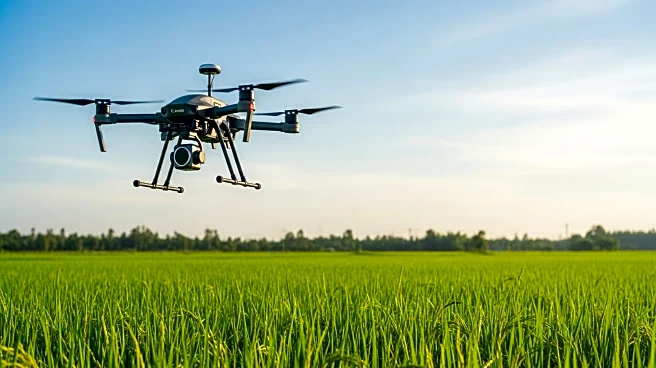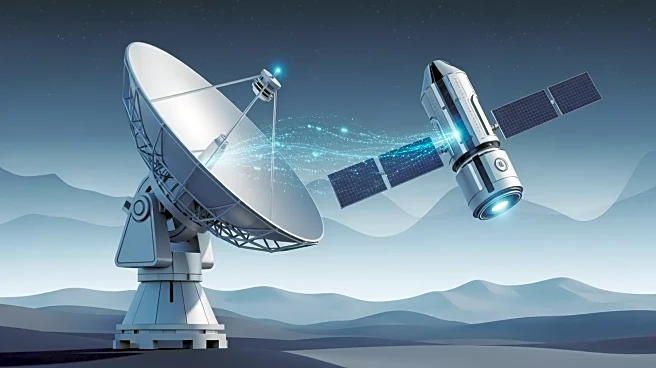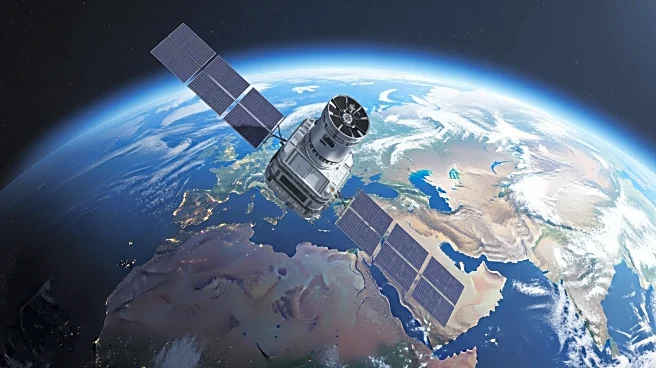What's Happening?
A recent study published in Nature introduces a novel hybrid deep learning framework designed for the accurate and early detection of paddy crop diseases. The framework integrates Self-Supervised Deep Hierarchical Reconstruction (SSDHR) and Long Short-Term Memory (LSTM) networks, enhancing the model's ability to monitor crop health in real-time. The study utilized a dataset of 16,225 images from paddy fields in Tamil Nadu, India, capturing various disease stages. The model leverages both spatial and temporal cues, allowing for continuous monitoring and early recognition of subtle changes in crop health. This approach aims to improve the generalizability of disease detection models, making them suitable for real-world agricultural monitoring systems.
Why It's Important?
The development of advanced monitoring systems for crop health is crucial in preventing famine and ensuring food security, particularly in regions prone to agricultural challenges. By employing hybrid deep learning models, the study addresses the need for precise and timely disease detection, which can significantly impact food production and supply chains. The integration of spatial and temporal data enhances the model's accuracy, potentially reducing crop losses and improving yield predictions. This technological advancement could benefit farmers, policymakers, and stakeholders in the agricultural sector by providing reliable tools for managing crop health and mitigating risks associated with plant diseases.
What's Next?
The study suggests future integration of localization with time-series databases to address regional and temporal variability in agriculture. This could lead to more robust agricultural monitoring systems capable of adapting to different environmental conditions and crop types. The implementation of such systems may prompt further research and development in AI-driven agricultural technologies, encouraging collaboration between tech companies, agricultural experts, and government agencies. As these technologies evolve, they may become integral to global efforts in combating food insecurity and enhancing sustainable farming practices.
Beyond the Headlines
The ethical implications of deploying AI in agriculture include concerns about data privacy and the potential displacement of traditional farming practices. Additionally, the reliance on technology raises questions about accessibility for small-scale farmers and the need for equitable distribution of technological benefits. Long-term, the integration of AI in agriculture could lead to shifts in labor dynamics and require new skill sets for workers in the sector.









